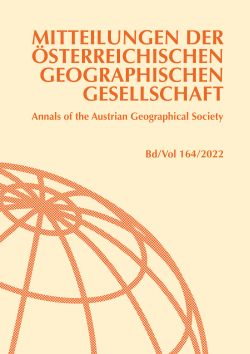
Mitteilungen der Österreichischen Geographischen Gesellschaft Band 164/2022, pp. 253-281, 2023/05/03
Band 164 (Jahresband), Wien 2022
Volume 164 (Annual volume), Vienna 2022

Numerous studies have shown worker cooperatives’ potential to reduce the precarity and economic exclusion of marginalised groups. However, less is known about their other social effects. In particular, the impact of cooperative work on intimate scales such as family life and the home has received little academic attention. This article examines how joining a worker cooperative changes migrant women’s social position in their intimate spaces: the family and the home. The research focuses on migrant women who are members of cleaning or care-worker cooperatives in New York City. The data were gathered using a participatory research approach in interviews, participant observations, and a quantitative survey. The findings reveal that worker cooperatives have empowering effects on migrant women beyond the sphere of paid work. Worker cooperatives can transform the family spaces of migrant women by increasing their resources as mothers, partners, daughters, and sisters. Although the additional unpaid workload as co-owners of cooperatives represents an extra burden for worker-owners, the women who participated in this study have more flexibility, more time off, and more voice in their families after joining a worker cooperative.
Keywords: Worker cooperatives, migrant entrepreneurship, family, home, participatory research, New York City